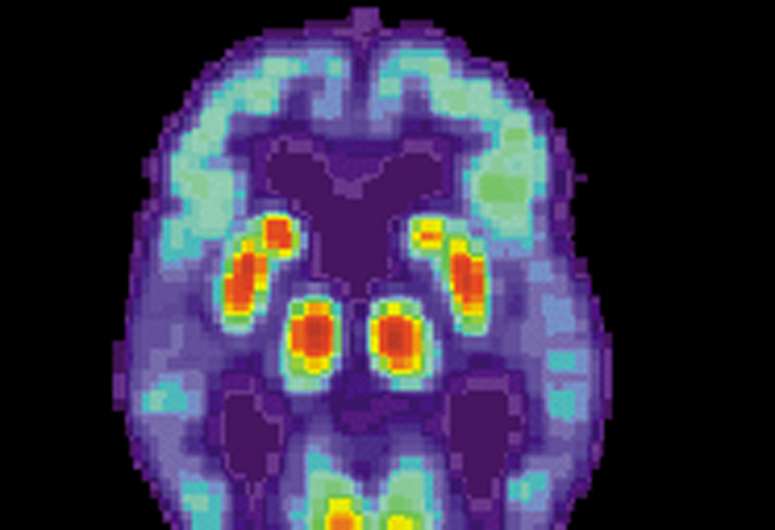This article has been reviewed according to Science X's editorial process and policies. Editors have highlighted the following attributes while ensuring the content's credibility:
fact-checked
trusted source
proofread
Researchers identify several new genetic risk factors for Alzheimer's disease unique to Ashkenazi Jews

Alzheimer's disease (AD), the most common neurodegenerative disorder in the world, affects individuals of all races and ethnicities; however, most genetic research for AD has been performed on individuals of European ancestry (EA) with a limited number of large-scale genetic studies in other populations.
For many centuries, Ashkenazi Jews lived in communities in Eastern Europe and were genetically isolated from their non-Jewish neighbors. As a result, researchers from Boston University Chobanian & Avedisian School of Medicine have hypothesized that some AD susceptibility variants are more frequent, and thus more likely to show statistically significant associations in this group compared to much larger and more genetically heterogeneous EA cohorts.
The team's findings appear online in the publication Alzheimer's & Dementia.
"Our study illustrates the greatly increased power for detection of genetic associations in communities like Ashkenazi Jews who trace their lineage to a relatively small group of ancestors. In such communities, disease-associated variants may be much more frequent compared to samples ascertained from large, mixed populations," explained corresponding author Lindsay A. Farrer, Ph.D., chief of biomedical genetics.
Farrer and his colleagues conducted a genome-wide association study for AD in a sample of approximately 3,500 individuals whose ancestry was almost exclusively Ashkenazi Jewish, including roughly equal numbers of persons with AD and cognitively normal individuals who were identified in a much larger group of EA participants in large national AD genetics studies using an approach that compared genetic signatures with members of an Ashkenazi Jewish reference sample. The researchers identified several genetic risk factors for AD, including some previously known (APOE, TREM2) and several novel ones that are strong biological candidates (RAB3, SMAP2, ZNF890P, SPOCK3, GIPR).
According to the researchers, this study illustrates the greatly increased power for detection of genetic associations in communities like Ashkenazi Jews who trace their lineage to a relatively small group of ancestors. "Some genetic association signals for complex diseases like AD are likely to be stronger in founder populations that are relatively genetically homogeneous," said Farrer.
Although some of the findings in Ashkenazi Jews were not observed in other populations because of the rarity or absence of these genetic variants in those groups, Farrer believes the contribution of the genes harboring these variants to AD biology is likely relevant to other major populations in the world. "Future studies focused on the AD-associated genes identified in this study may lead to the development of novel AD biomarkers and therapeutic targets," he said.
More information: Novel loci for Alzheimer's disease identified by a genome-wide association study in Ashkenazi Jews, Alzheimer's & Dementia (2023). DOI: 10.1002/alz.13117


















